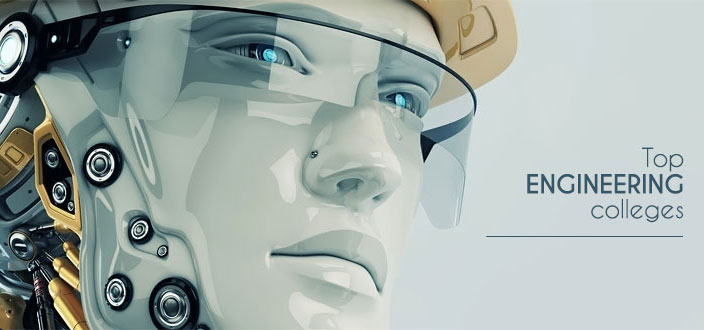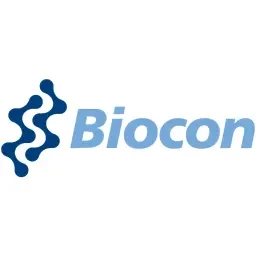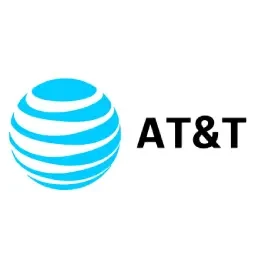Why Choose Engineering After 12th Science?
By opting for engineering after 12th science, one can have access to a variety of different and high-growth career opportunities. Technology, innovation, and problem-solving are the areas of interest for which engineering remains a favourite choice of students.
Pros of Engineering:
- Careers with great demands in sectors such as IT, AI, aerospace, and infrastructure
- A large number of branches and specialisations
- Career and higher education opportunities worldwide
- Strong technical and problem-solving skills
- Startup and entrepreneurship opportunities in Bangalore's tech ecosystem
Picking the best engineering colleges in Bangalore 2026 is the right decision for students to acquire practical skills, get industry exposure, and have placement support for their career growth.
Top Engineering Courses After 12th Science
12th Science (PCM) students have a great opportunity to pick any engineering courses from a wide range of engineering colleges. These courses are tailored to fit the real industry demands and show strong career growth possibilities.
Popular Engineering Courses:
- Computer Science Engineering (CSE) – Artificial Intelligence, Machine Learning, Data Science, Cybersecurity, Cloud Computing
- Information Technology (IT) – Software development, networking, IoT, system administration
- Mechanical Engineering – Robotics, automotive engineering, manufacturing, design
- Civil Engineering – Construction, structural engineering, smart cities, urban planning
- Electronics & Communication Engineering (ECE) – Embedded systems, VLSI, IoT, communication technologies
- Electrical & Electronics Engineering (EEE) – Power systems, automation, renewable energy
- Chemical Engineering – Industrial processes, pharmaceuticals, petrochemicals
- Biotechnology & Biomedical Engineering – Medical technology, genetics, research and development
These leading engineering courses after 12th provide great career opportunities in IT, core engineering, healthcare, manufacturing, and research industries, thus being perfect picks for the ones who think about their future.
Popular Engineering Branches in Bangalore
Bangalore hosts some of the best engineering institutions with a variety of engineering branches and industry-oriented specialisations. These branches offer great career prospects in India and abroad.
- Computer Science & IT Engineering Branches
- Specializations: Artificial Intelligence (AI), Machine Learning (ML), Data Science, Cybersecurity, Cloud Computing
- Career Options: Software Developer, Data Analyst, AI Engineer
- Mechanical & Automobile Engineering Branches
- Specializations: Robotics, Automotive Engineering, Manufacturing Technology
- Career Options: Mechanical Design Engineer, Robotics Engineer, Production Engineer
- Civil & Infrastructure Engineering Branches
- Specializations: Structural Engineering, Smart Cities, Environmental Engineering
- Career Options: Structural Engineer, Project Manager, Urban Planner
- Electronics & Communication Engineering (ECE)
- Specializations: VLSI Design, Embedded Systems, Internet of Things (IoT), Signal Processing
- Career Options: IoT Developer, VLSI Engineer, Communication Engineer
- Electrical & Electronics Engineering (EEE)
- Specializations: Power Systems, Renewable Energy, Industrial Automation
- Career Options: Electrical Engineer, Power Systems Engineer, Automation Engineer
- Chemical & Biotechnology Engineering Branches
- Specializations: Pharmaceutical Engineering, Biochemical Processes, Genetic Engineering
- Career Options: Process Engineer, Biotechnologist, Research Scientist
- Aerospace & Aeronautical Engineering
- Specializations: Aerodynamics, Aircraft Design, Space Engineering
- Career Options: Aerospace Engineer, Avionics Designer,
Choosing the best engineering colleges in Bangalore 2026 will give you access to advanced labs, industry exposure, and strong placement opportunities for these popular engineering branches.
Entrance Exams for Engineering Colleges in Bangalore
Admission to the best engineering colleges in Bangalore 2026 is mostly decided by the scores in the acknowledged engineering entrance exams. These exams are the means of getting access to government, private, and deemed engineering institutions all over Karnataka.
Major Entrance Exams Accepted in Bangalore:
- KCET (Karnataka Common Entrance Test) - A state-level entrance exam for admission to government and some private engineering colleges in Karnataka.
- COMEDK UGET - By far, the most significant entrance exams for private engineering colleges in Bangalore and the whole of Karnataka are the ones that the COMEDK UGET is.
- JEE Main - An India-wide engineering entrance exam whose scores are used for admission in many good engineering colleges in Bangalore. Mostly for BTech courses.
Direct Admission (Management / NRI Quota)
Students who decide to skip the entrance exams may choose direct admission in engineering colleges in Bangalore by management quota or NRI quota, of course, if the conditions of eligibility and the availability of seats are met.
Whether one chooses to go for the entrance exams or take the direct admission route, good preparation and applying at the right time are must-haves to be able to get a seat in the top engineering colleges in Bangalore in 2026.
Eligibility Criteria
Those who want to study engineering in Bangalore must have the following:
- Completed 12th Science (PCM).
- Minimum marks as required by the college.
- Entrance exam score (if applying through merit).
The documents required are:
- 12th mark sheet
- Transfer certificate
- ID proof
- Passport-size photos.
Engineering Fees Structure in Bangalore
The fee structure for engineering in Bangalore changes based on the type of college, category of admission, and the branch of engineering selected. Here is a brief overview of the engineering admissions 2026:
- Government Engineering Colleges: ₹20,000 – ₹80,000 per year
- Private Engineering Colleges (Merit Seats): ₹1,00,000 – ₹2,50,000 per year
- Management Quota Engineering Fees: ₹2,50,000 – ₹6,00,000 per year
The fees for the engineering college in Bangalore may differ from one branch to another. Generally, CSE, AI & DS, and ECE courses have been more expensive in the last few years due to the high demand for these sectors in the industry as well as for the trend of placements.
Placements and Career Opportunities
What are the benefits of engineering colleges in Bangalore? Top engineering colleges in Bangalore provide:
- On-campus interviews with leading IT, core, and R&D companies
- Interviews with top IT, core, and R&D companies High salary packages and internship opportunities
- Good salary packages and internship opportunities
- Industry collaborations with startups and MNCs
The top engineering colleges in Bangalore have good relations with startups and multinational companies which engage in collaborative projects with the colleges.
- Training in communication, aptitude, and technical skills
- Students are given communication,
How to Choose the Right College
Before choosing a college, you should definitely think about the following:
The courses and branches available
- Placement records
- The knowledge of the faculty and their teaching methods
- The laboratory and research facilities
- The infrastructure and the campus
- The fees and scholarships
- The reviews by the students and the ranking
- Analysing these parameters enables students to find the top engineering colleges in Bangalore.
Conclusion
Are you prepared to embark on your engineering journey? Find out about the best engineering colleges in Bangalore, how to get admitted, the courses, fees, and direct admission possibilities.
Need help from an expert? Get in touch with us for professional guidance and decide which engineering stream and college in Bangalore suits you the best.





















